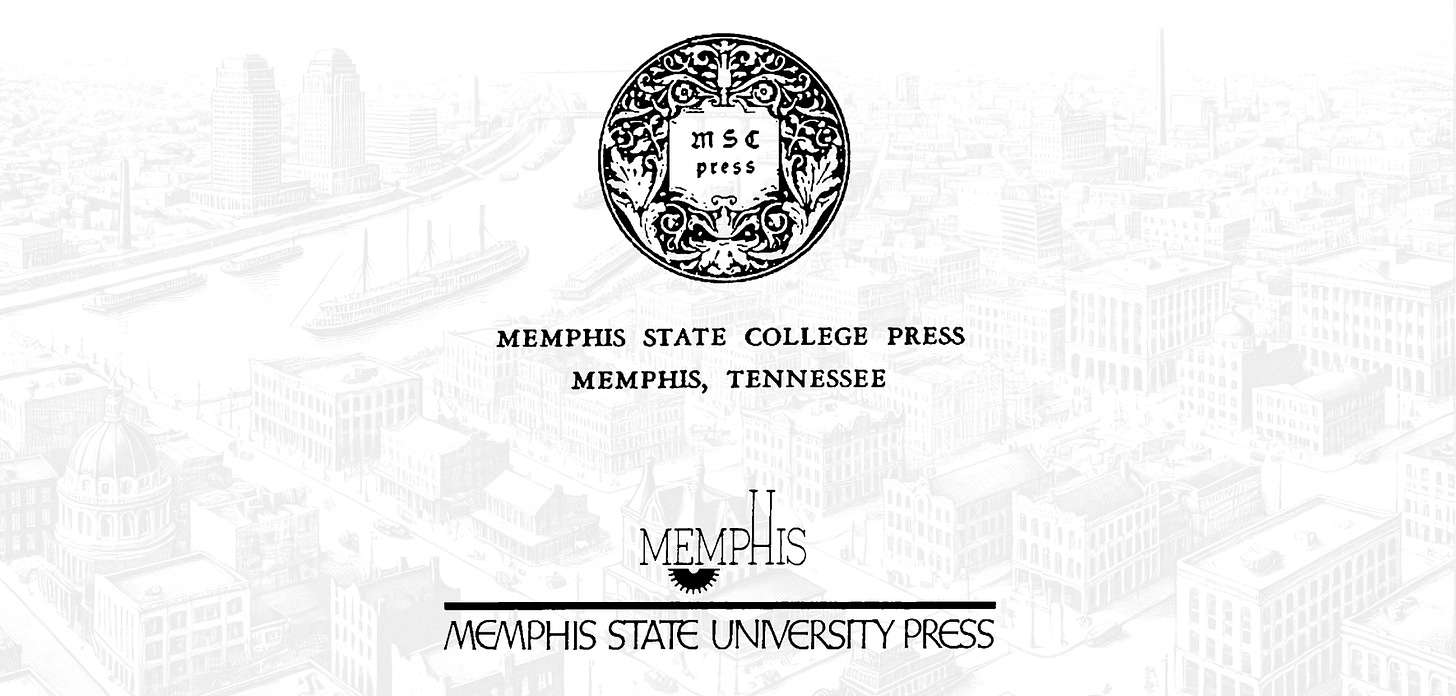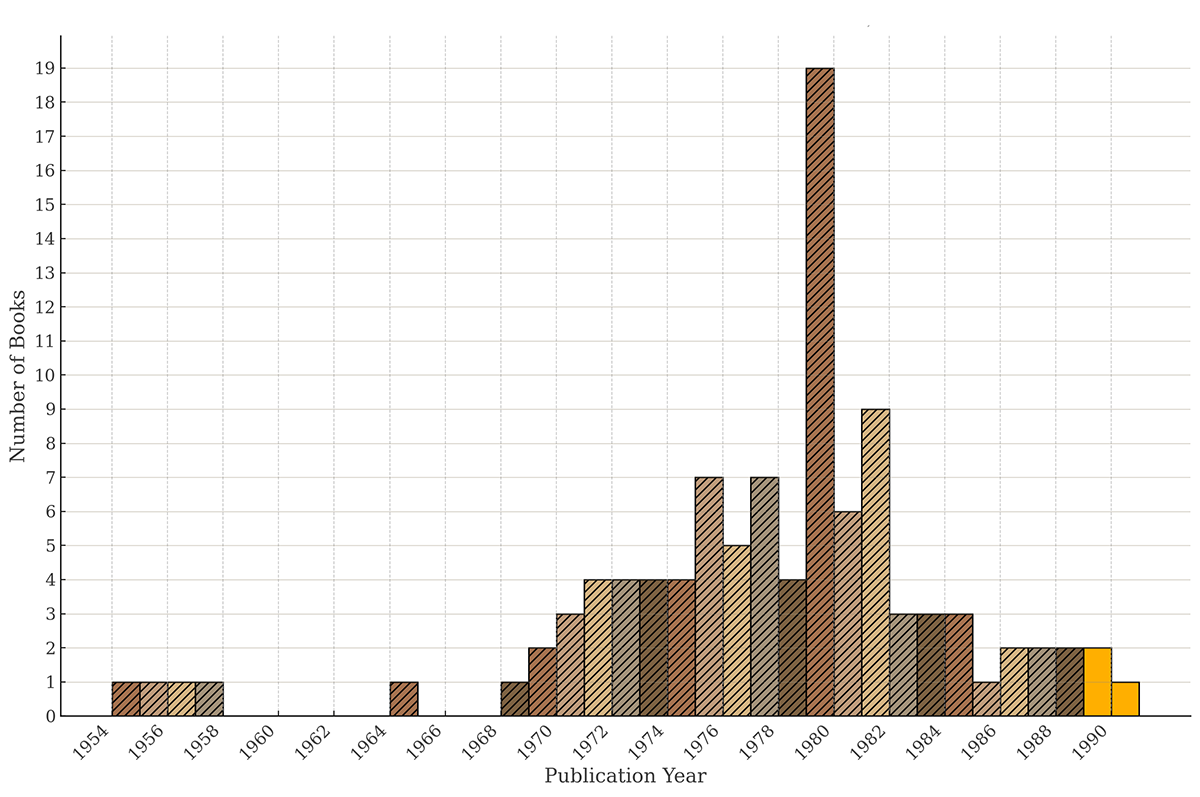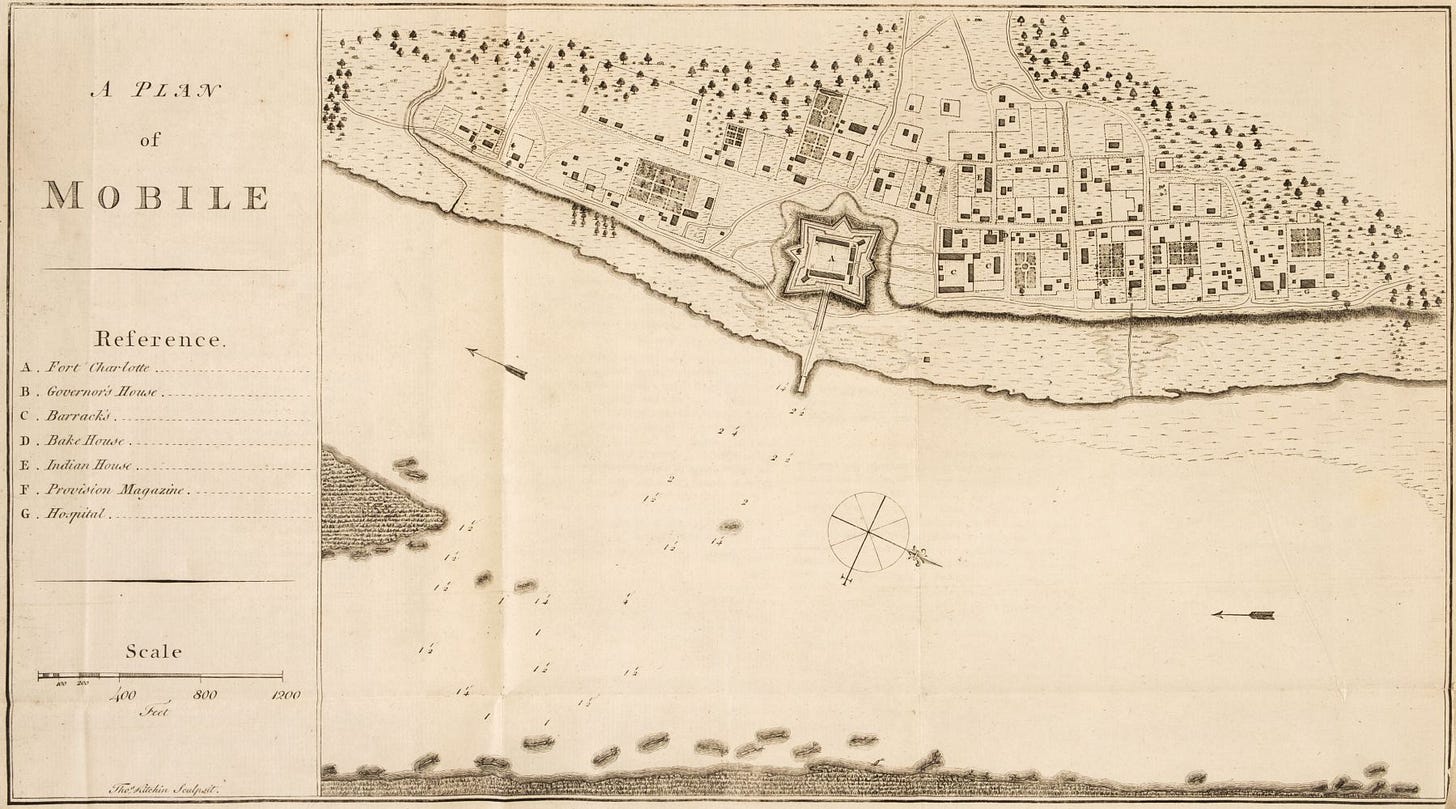South Bound: Memphis State University Press
Book Publishers in the South 1
This essay initiates a series examining book publishers across the South. The now-defunct Memphis State University Press, with its modest output, is a good enough place to start.
“The Memphis State University Press promotes the development and publication of scholarly books and works of interest to the general reader. The Press welcomes works of regional interest on Tennessee and the Mid-South. In emphasizing scholarly works, the Press gives preference to those of wide appeal to the academic community.” The last mention of the press in the Bulletin of Memphis State University: Graduate Catalog 1990-91.
The History
Memphis State College Press emerged in 1954. It was privately financed and board-sponsored. It bore fruit briefly, yielding five volumes before withering away by 1957. The press lay dormant until 1964 when, through Enoch L. Mitchell's solitary efforts, it stirred to produce one last book before lapsing back into silence, most likely due to Mitchell’s death in 1965.1
The Board:
Abe Waldauer: Memphis attorney, E.H. Crump lieutenant, WWI veteran, and donator of what was likely the first copy of the Dead Sea Scrolls to be received by an American college.2
Enoch L. Mitchell, professor of history at Memphis State College.
O. W. Hyman, dean of the University of Tennessee Medical Units.
Joseph Lewis, president of the Herff Foundation.
Lee Newcomer, associate professor of history at Memphis State College and editor of the press.
The appointment of Lamar W. Bridges as Memphis State University's first university editor in 1967 signaled a significant shift in the institution's publishing ambitions. President C. C. Humphreys's decision not only revived the previously dissolved press but demonstrated a commitment to Mid-Southern scholarship.
In 1970, Humphreys chose James D. Simmons to lead the press. For a short time, good books were published. But soon, old problems returned. In 1978, they tried one last time to succeed. They chose Odie B. Faulk. As one paper put it, the story was like one of Faulk's own Western books. A struggling ranch, a hero from the Southwest. But this time, Faulk was the man who rode into town, and Memphis State University Press was the ranch he had to save.3
Faulk says he wants to focus the MSU Press catalogue on the Mid-South. Success in university publishing is often tied to such a focus, he says, and success in recent years has not come easy to college presses. “We have a choice of being a fifth-rate national publisher or a first-class regional publisher. I'd opt for first-class,” he says.4
The press published its last book in 1991. They said new books would come in 1992. None did. By 1994, Memphis State had shed its old identity and emerged anew as the University of Memphis. I don’t know what happened to the press.
The Books
Attempting to round up every literary offspring of a publishing house is not a straight path. The Library of Congress online catalog, my go-to tool, is not quite the omniscient librarian we might wish for. The LOC doesn’t have every book they published and mislabeled a few items published by Memphis State University’s John Willard Brister Library Mississippi Valley Collection and Bureau of Business & Economic Research. I made a CSV catalog of all the books they published if you’re curious. But I probably missed some. Now, the highlights.
The Highlights
Memphis State College Press Era
1954
Claude G. Bowers' Making Democracy a Reality: Jefferson, Jackson, and Polk was the first book to be published by the press. We can thank Enoch L. Mitchell for founding the J. P. Young Lectures in American History series, which gave birth to this book and several others. J.P. Young = John Preston Young. Young, a Confederate Veteran, started as a lawyer in Memphis in 1872, serving as a Circuit Court judge from 1902-1923. He held notable positions in historical societies, including vice president for West Tennessee in the Tennessee Historical Society and secretary for the Forrest Monument Association. In 1905, he led the dedication of the Nathan Bedford Forrest monument.
“I have just been reading a book published by the Memphis State College Press which contains four lectures given by Claude G. Bowers at the Memphis State College.” - Eleanor Roosevelt
1955
A reprint of From Frontier To Plantation In Tennessee: A Study In Frontier Democracy by Thomas Perkins Abernethy which was originally published in 1932 by the University of North Carolina Press.
1956
The Road To Appomattox by Bell I. Wiley, also a J. P. Young Lecture.
1957
Memphis During The Progressive Era, 1900-1917 by William D. Miller.
1964
Politics On The Southwestern Frontier: Arkansas Territory, 1819-1836 by Lonnie J. White
Memphis State University Press Era
1969
Night Riders of Reelfoot Lake by Paul J. Vanderwood.
1971
Rebel Coach: My Football Family by John Vaught seems a bit expensive and is not digitized or archived.
1972
From the Mountain: Selections from Pseudopodia 1936, The North Georgia Review 1937-1941, and South Today 1942-1945 edited, with an introduction by Helen White and Redding S. Sugg, Jr. A “Deep Southern Periodical Cut”.
1973
The Confederate Soldier by LeGrand James Wilson.
1974
Jesse Hill Ford: An Annotated Checklist of His Published Works and of His Papers. One of those John Willard Brister Library Mississippi Valley Collection publications I mentioned.
Life in the Leatherwoods edited with an afterword by John Quincy Wolf, Jr. Introduction and notes by F. Jack Hurley. Drawings by Jim Barnett.
1975
A Yankee Guerrillero: Frederick Funston and the Cuban Insurrection, 1896-1897 by Thomas W. Crouch.
1976
A Radical View: The "Agate" Dispatches of Whitelaw Reid, 1861-1865
1977
1978
Lincoln and the Economics of the American Dream by Gabor S. Boritt. On my shelves sits a book inscribed to Boritt from M.E. Bradford. Also relevant is Bradford’s “Commentary” of Boritt’s essay “Gabor S. Boritt, “Lincoln and the Economics of the American Dream” in The Historian's Lincoln, Pseudohistory, Psychohistory, and History edited by Gabor S. Boritt (University of Illinois Press, 1988).
The Odie B. Faulk Era
1979
This is the year they launched the Tennessee County History Series, an ambitious project to publish a history of all 95 Tennessee counties. The series was never completed.
Anderson County, Benton County, Decatur County, and Henderson County histories were published in ‘79. Others published: Bradley County, Claiborne County, Hamilton County, Cannon County, Grundy County, Weakley County, Wilson County, McMinn County, Rutherford County, Sequatchie County, Dekalb County, Morgan County, Montgomery County, Davidson County, and Fayette County. All can be found here.
Cavorting On The Devil's Fork: The Pete Whetstone Letters of C. F. M. Noland
Cotton Row To Beale Street: A Business History of Memphis by Robert A. Sigafoos
I Called Him Babe: Elvis Presley's Nurse Remembers by Marian J. Cocke
Stand Watie and the Agony of the Cherokee Nation by Kenny A. Franks. One we definitely need to get archived.
Tennessee in Turmoil: Politics in the Volunteer State, 1920-1932 by David D. Lee
The Long Haul: Truckers, Truck Stops & Trucking by James H. Thomas
1980
Jesse Stuart, Kentucky's Chronicler-Poet by J. R. LeMaster
Another un-archived one, The Grand Huckster: Houston's Judge Roy Hofheinz, Genius of the Astrodome by Edgar W. Ray
A favorite of mine, The Home Place: A Memory and Celebration by Robert Drake
The Nashville Convention: Southern Movement For Unity, 1848-1851 by Thelma Jennings
1981
Sherman's Other War: The General and the Civil War Press by John F. Marszalek
1982
The End of Arcadia: Gordon Browning and Tennessee Politics by William R. Majors
1983
Southern Literature in Transition: Heritage and Promise edited by Philip Castille and William Osborne
1991
and what I believe to be their last, The Search For Identity: A History of Tennessee Technological University, 1915-1985 by Harvey G. Neufeldt.
Check the archive for others.
Honorable Mention
They had another lecture series that led to books, the M. L. Seidman Town Hall Lectures Series; see Debate, Diversity, Discussion: The M.L. Seidman Town Hall Lecture Series from 1967 to 1994 by Mel G. Grinspan. Not published by the Press, MSU published over two hundred Oral History volumes on the T.V.A., Boss Crump, and other local subjects.
See Journal of Southern History, Vol. 20, No. 4 (Nov. 1954), pp. 573-587, History of Book Publishing in the United States Volume IV: The Great Change 1940-1980, pp 680-681; and some Newspaper clippings I archived tell the story if anyone wants to go deeper.
“The Memphis Press … is headed by Abe Waldauer, well known Memphis attorney.” Southern Observer 1955-02, p. 36. Waldauer is a legendary Memphian. “Abe Waldauer was another major lieutenant in the Crump machine. Waldauer was born of Jewish parents in Vicksburg, Mississippi, and moved to Memphis in 1913. During World War I, Waldauer served under Gordon Browning, captain of Battery A, 114 Field Artillery, who would be three-term governor of Tennessee. The two men fought together at the Battle of the Argonne Forest.” Babies for Sale: The Tennessee Children's Home Adoption Scandal by Linda T. Austin. Also, The Baby Thief: The Untold Story of Georgia Tann, the Baby Seller Who Corrupted Adoption by Barbara Bisanz Raymond.
- For Dead Sea Scrolls, see Southwestern at Memphis, 1948-1975 by James E. Roper.
- Fascinating anecdotes and Rabbit-trail bait can be found in Mean Things Happening in this Land: The Life and Times of H.L. Mitchell, Co-Founder of the Southern Tenant Farmers Union by H. L. Mitchell; Allen Tate and wife seemed to know him well, see p. 139 in Close Connections Caroline Gordon and the Southern Renaissance by Ann Waldron. The Memphis State University Oral History Project, Recent Tennessee political history: interviews with Brainard Cheney, Interview with him and his wife.
The Memphis Press-Scimitar, 1978-11-10, p.5. (in Newspaper Clippings). Also, fascinating, at least to me, that Faulk wrote for Chronicles Magazine.








I work at UofM, in the Department of History, and just found 27 boxes of of a book from this press in a closet in our department. I had no idea Memphis had a press before, and it was great to learn more about it here on your site! Thank you! The book is "The Exciting Times" by William Sorrels, 1987, if you want to add it! :-)
Regarding small college publishing: I wonder if the problem is not so much with the publishers, they do a good job, but with the lack of material coming out of the higher education system. No good lectures to print. I wonder where the good lectures are today? Any ideas?